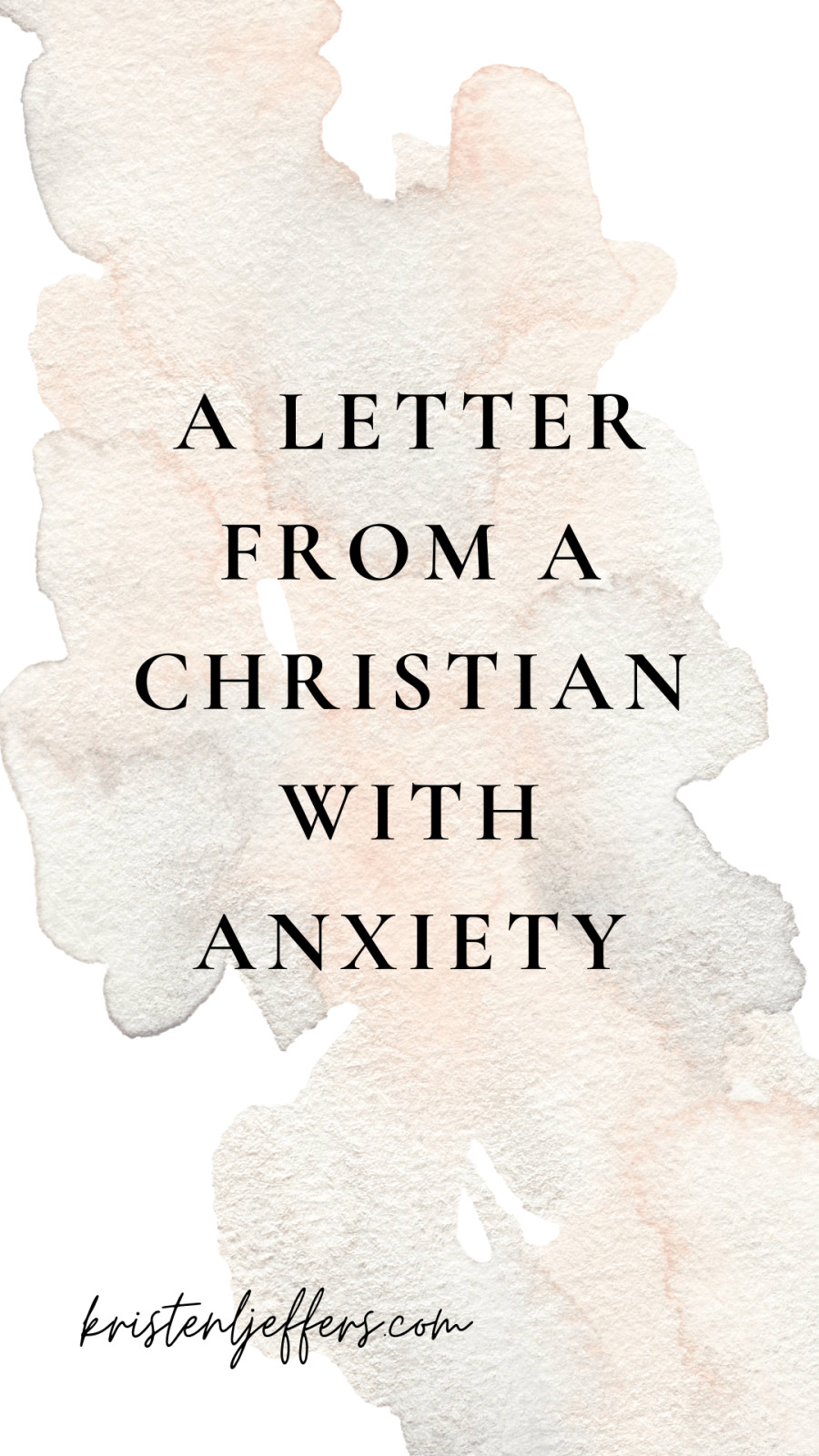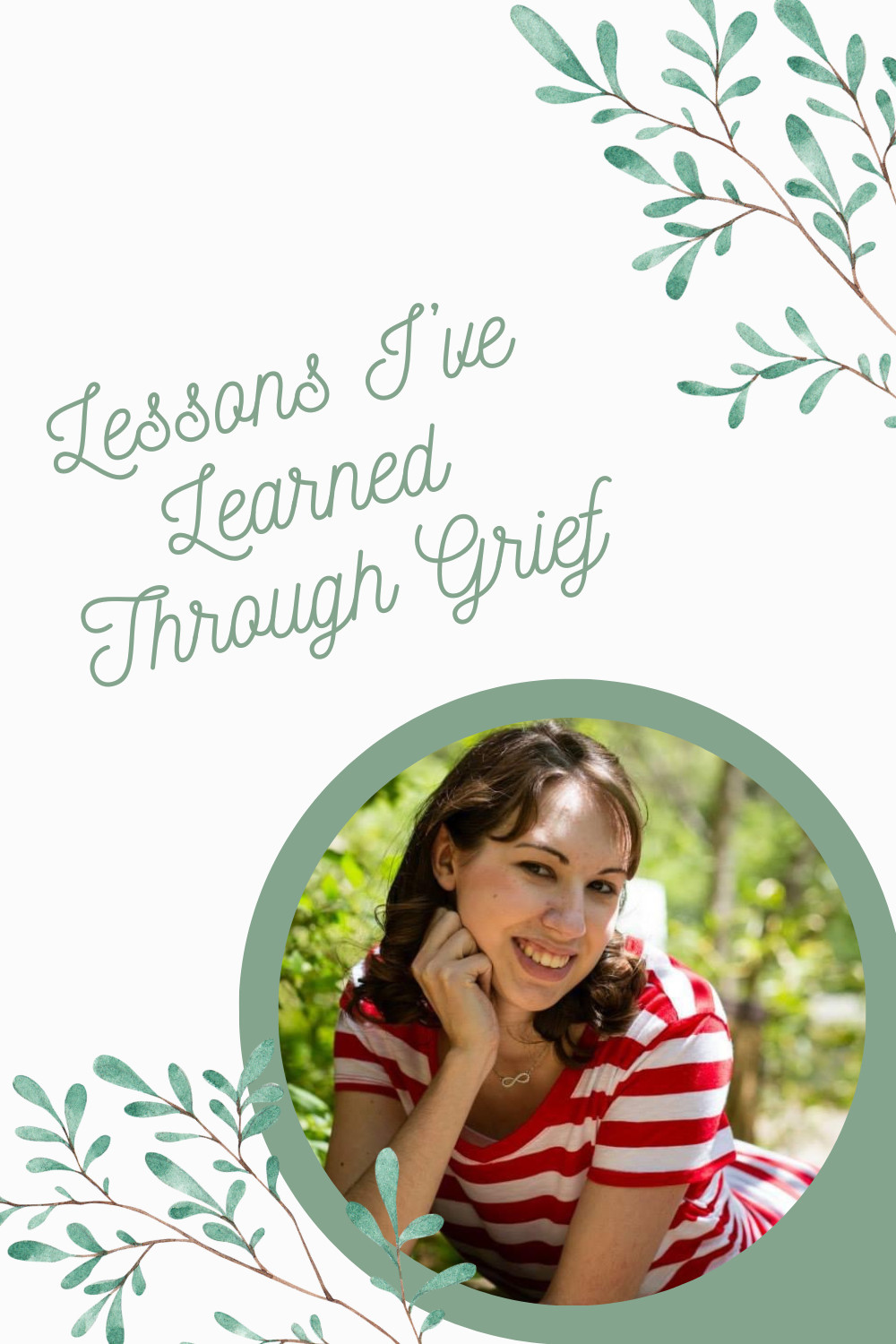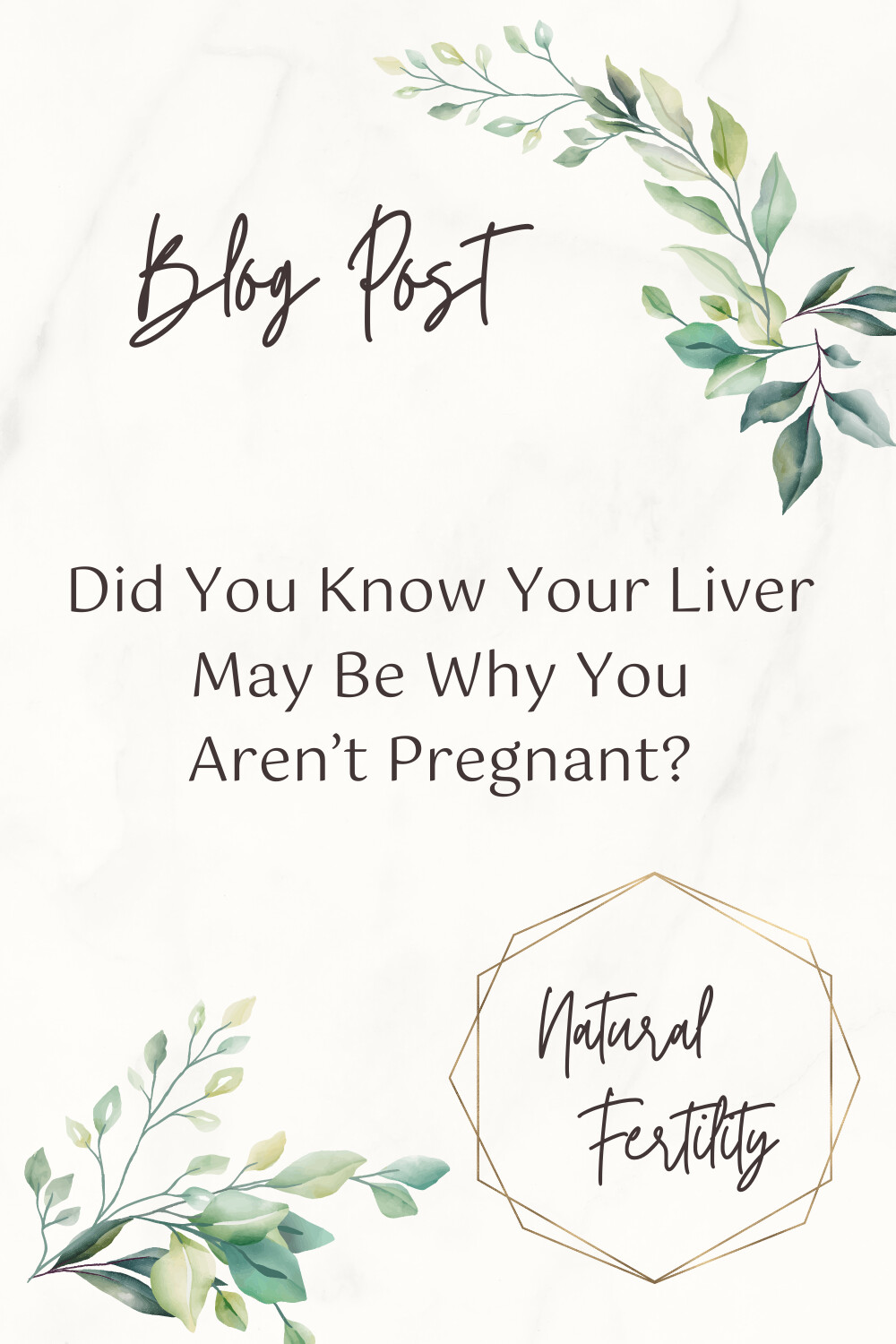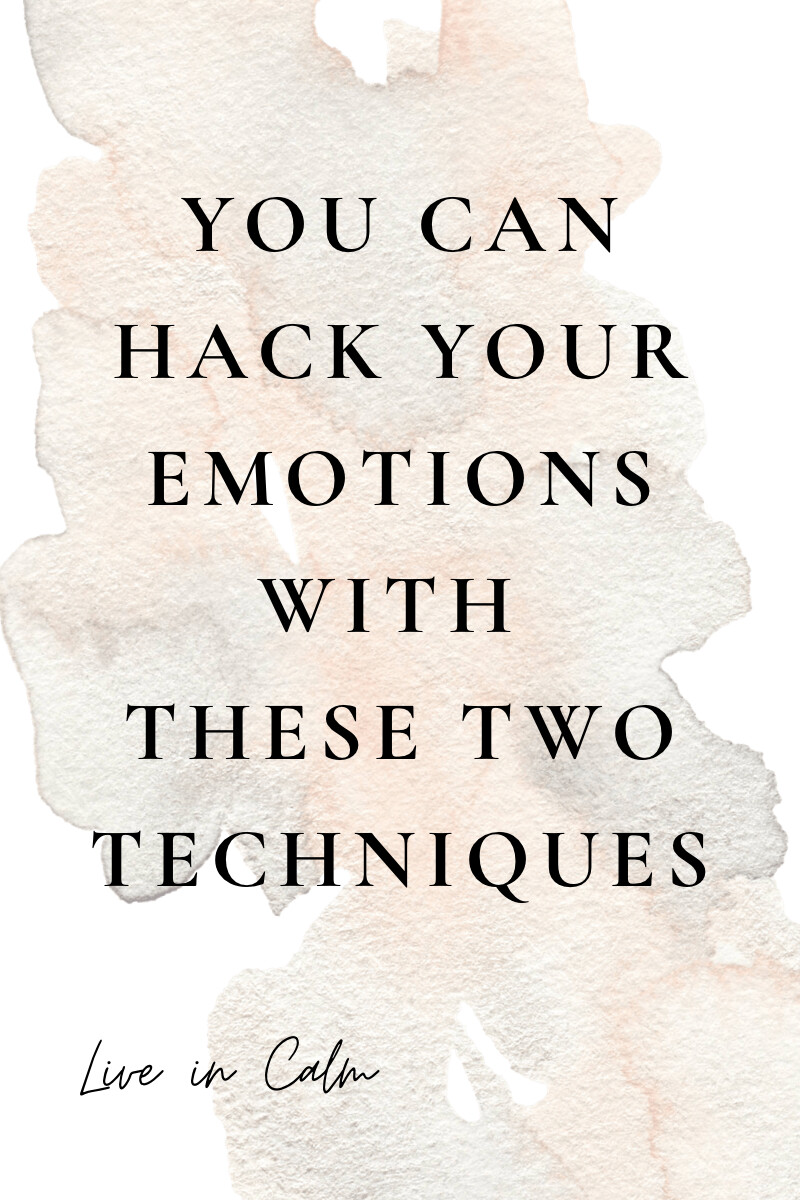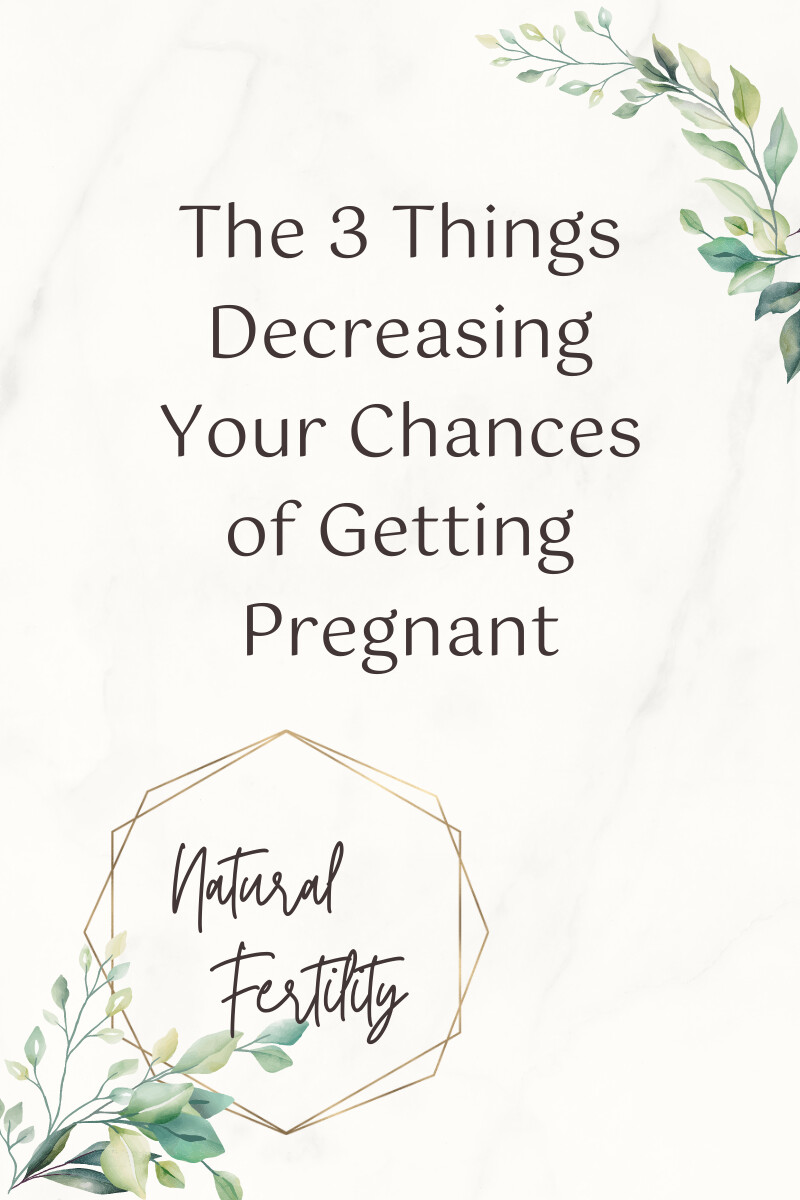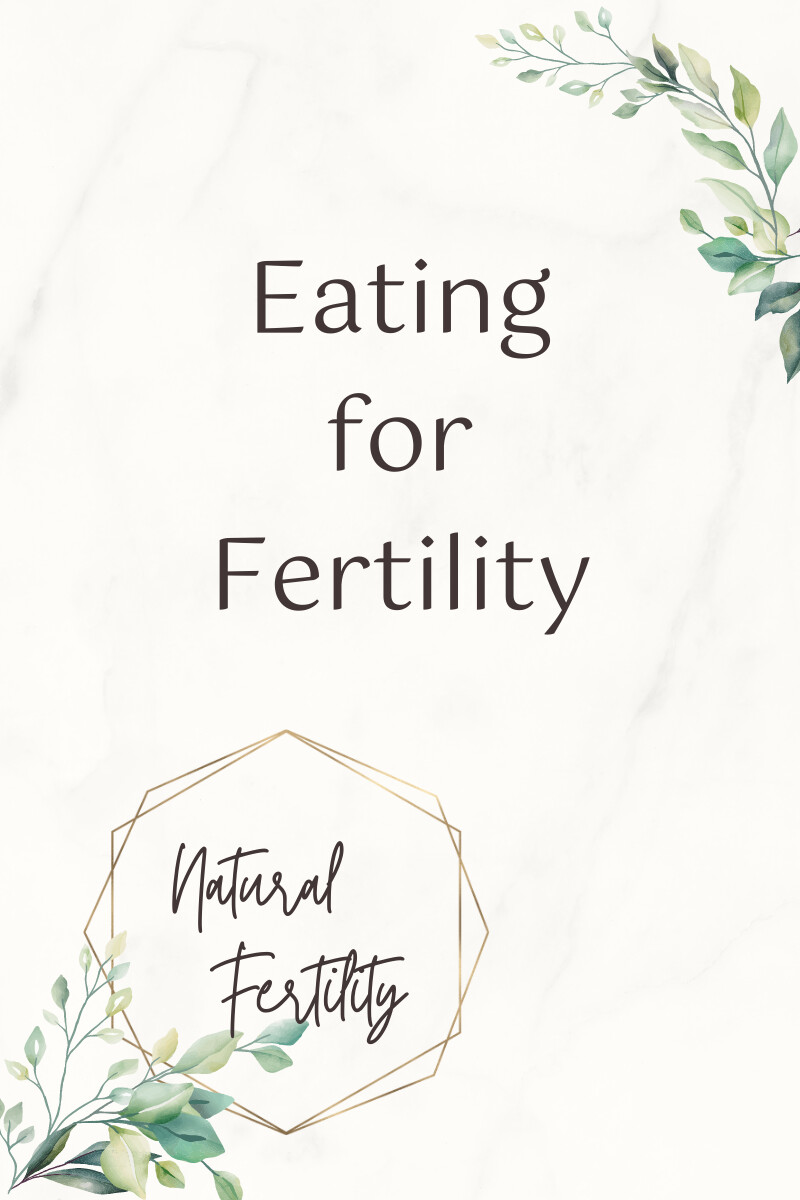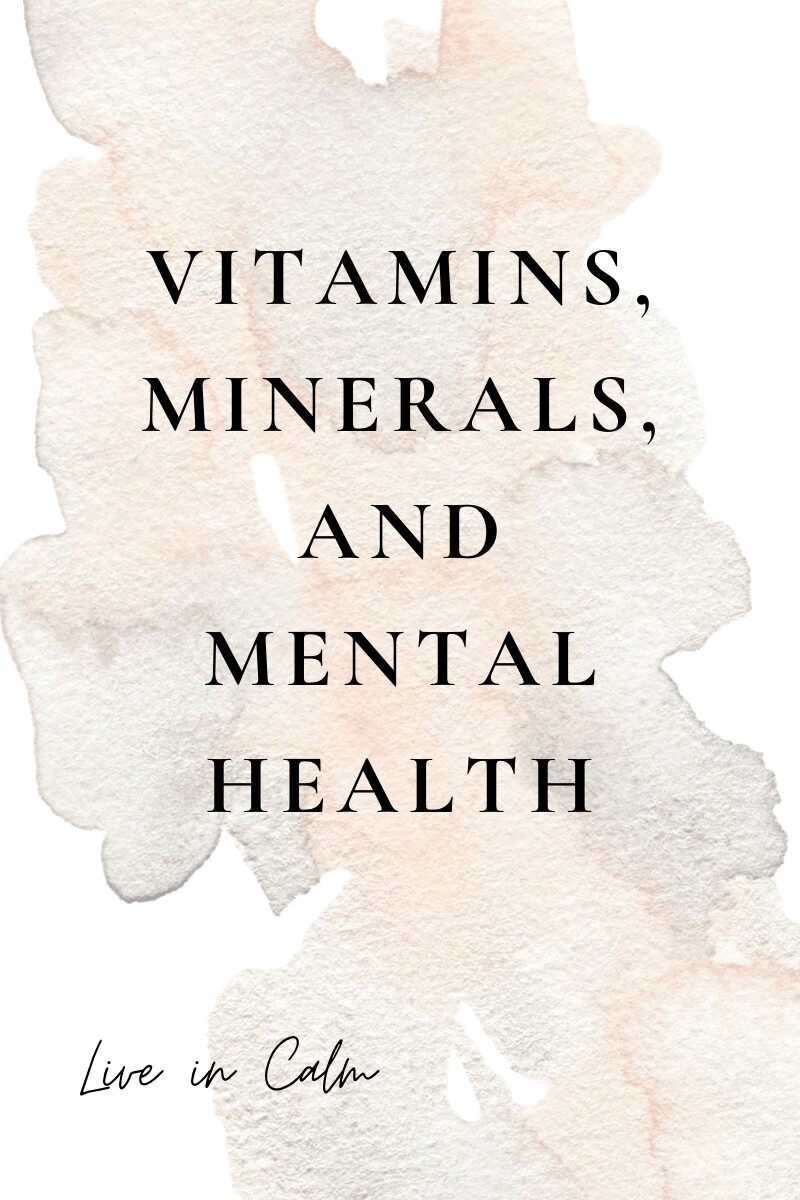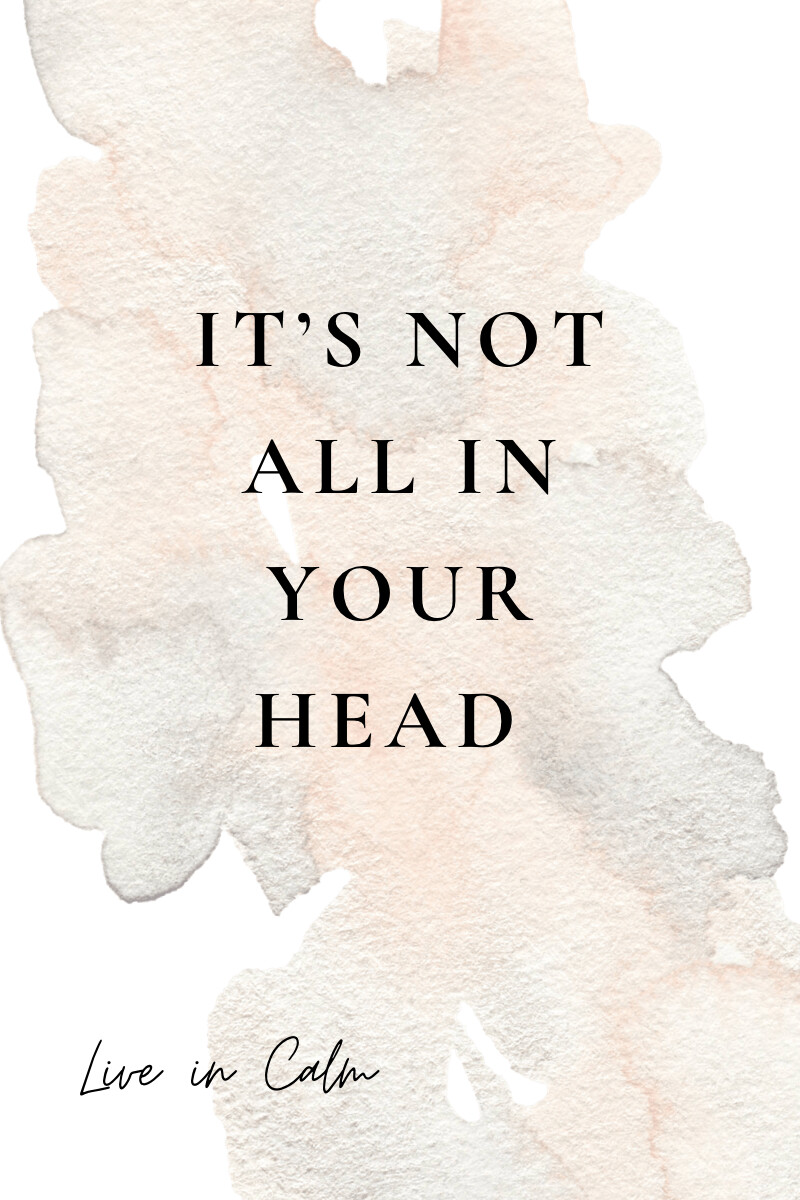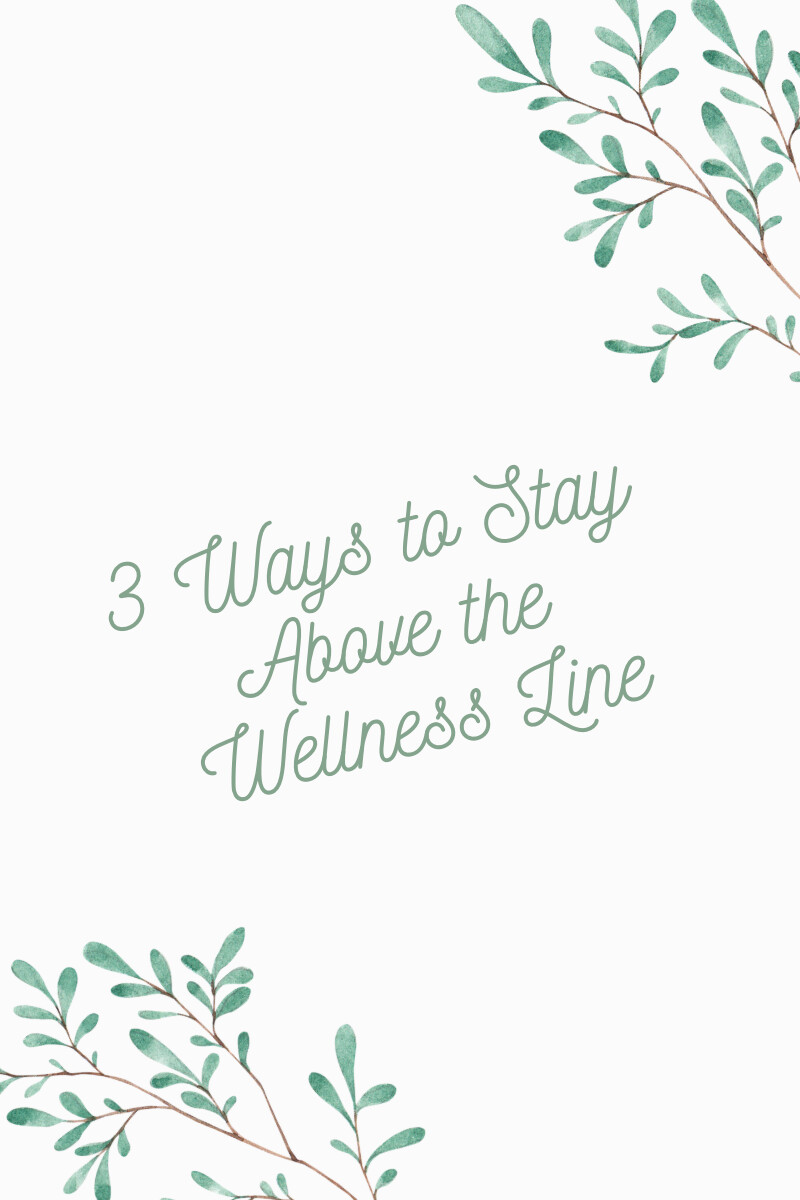Has an OBGYN or even a midwife ever address fertility/pregnancy supporting foods with you? I had a midwife because my desire was to approach my fertility and pregnancy in a more natural way and still the only time diet was mentioned was when she wanted me to chart what I ate for a week. The only feedback I received when I returned it to her was that I needed to add “more colors” into my meals. I knew she meant vegetables and the like, but I still felt lost. Can you relate?
Ingredients that Harm Fertility
Ingredients to avoid would have been the first thing I wanted to know when I was in your shoes. I don’t meant the common list of “fish, mayonnaise, potato or egg salad, etc.” that pregnant women are given with little explanation as to why they shouldn’t eat them. I mean I wanted to know the things that could hinder my fertility and why. Here’s the list I wish I had when I was TTC.
- Trans Fatty Acids: raises bad cholesterol and lowers the good; found in margarine, baked and fried foods. Find them in foods by looking for “partially hydrogenated oils.”
- Seed Oils: these could fall under the umbrella of trans fatty acids, but show up differently on labels. These include canola, vegetable, sunflower, corn, cottonseed, grape seed, rice bran, safflower, soybean oils. Organic versions do not make them better. Go for things like coconut, avocado, and extra virgin olive oil instead. Organic options of these are best.
- Refined Carbs: sugary foods & drink and processed grains including pasta, breads, and oats
- Caffeine: more than 500mg a day may add months to TTC calendar
- Alcohol: 14+ drinks per week can add time to TTC calendar
- Food Dyes: these are manufactured using petroleum which is waste from the gas/oil industry
Foods & Nutrients to Promote Fertility
If I had been handed that list, my next question would have been, “so what can I eat?” Are you asking that right now too? Don’t worry, I’ve got ya covered, friend. Get ready to take some notes or screenshot this.
- Complex Carbohydrates: these are nutrient dense and help to balance blood sugar while making you feel full; sources include fruits, vegetables, brown rice, beans, seeds, and tapioca
- Fiber: this is important to maintain proper bowel movement which in turn removes extra estrogen from the body. Complex carbs are a great source of fiber. Two birds, one stone!
- Monounsaturated Fats: unlike the trans fats, these fats lower bad cholesterol and increase good. These can be found in the healthy oil options listed above.
- Folate: doctors will recommend folic acid, but this is a synthetic version of folate; your body doesn’t know what to do with fake nutrients so basically you’re paying for expensive pee. Find a supplement that has folate and you’ll be on a better track and not wasting your money. You can find it in fresh fruits, eggs, dark leafy greens, liver, and peanuts. Avoid the flavored nuts because they’ll probably have some of the ingredients you’re trying to avoid. Food companies are sneaky.
- Vitamin B12: some studies have shown that this, along with folate, may help regulate your cycle which makes conception much easier.*1 Add some fish, eggs, liver, poultry, or read meat to your menu.
- Vitamin A: studies in cows have found supplementation of vitamin A to be beneficial and increase the odds of conception when artificial insemination is used.*2 Get it from leafy green vegetables, eggs, beef liver, and fish oils. Seeing a pattern here?
- Vitamin D: studies are definite on this, but are saying it may be beneficial to fertility; good food sources would be tuna, salmon, egg yolks, and beef liver.
- Vitamins C & E: These were studied in women with endometriosis and found to reduce the inflammation that was part of the disease. Inflammation is never helpful to fertility so whether you have endo or not, these can be beneficial. Get them by eating citrus fruits, strawberries, tomatoes, red bell peppers, almonds, and peanuts.
This list is not exhaustive, but will give you a good place to start. As always, I encourage you to do some research of your own. You will always be the best advocate for your health. Want help getting started with healthier food choices? Schedule a free 30 minute consultation with me! I’ll help you find budget friendly meals and supplements that integrate these nutrients. Let’s talk soon. 💜
Footnotes:
*1 Thornburgh S, Gaskins AJ. B vitamins, polycystic ovary syndrome, and fertility. Curr Opin Endocrinol Diabetes Obes. 2022 Dec 1;29(6):554-559. doi: 10.1097/MED.0000000000000773. Epub 2022 Sep 27. PMID: 36165609.
*2 Ikeda S, Kitagawa M, Imai H, Yamada M. The roles of vitamin A for cytoplasmic maturation of bovine oocytes. J Reprod Dev. 2005 Feb;51(1):23-35. doi: 10.1262/jrd.51.23. PMID: 15750294.
The battle for mental health is real sadly many people join it every day, especially women. Men battle it as well, but I am specifically going to discuss the facts pertaining to us women. That doesn’t mean that a man can not benefit from this information though. Please note that I am not allowed to name any specific mental diagnosis per the FDA or this blog could be taken down. I’d prefer that it stay up for you to empower yourself to make educated choices for your personal health. I’ll do my best to share clearly while staying within the enforced parameters. Ready to jump in? Let’s go!
Deficiencies are Our Silent Enemy
Has a professional ever suggested to you that your diet may be linked to your mental wellness? My guess is that you just answered, “no.” Studies that prove that fact is true abound, so why are we not taught this or told by those who are supposed to be helping us be well? It makes me righteously angry to think about it.
The studies I read mentioned B vitamins, vitamin C, vitamin D, and magnesium frequently. A lack of B vitamins can lead to deep feelings of sadness.*1 Not enough vitamin C can be connected to multiple stress related diagnoses. *2 Too little vitamin D can be linked to deep feelings of sadness and constant worry.*3 Magnesium pretty much covers the gamut of mental wellness and even touches the physical functioning of the brain and body.*4
Study Proven Results
A year long study used vitamin with those who dealt with any level of sadness and worry from general to deep and continual. 42.9% of those with general levels of these emotions showed improvement after the year ended. 97.2% of those classified as deep sadness and/or continual worry showed considerable improvement. *5
Another study “suggests that a higher intake of dietary B vitamins, especially biotin, was associated with a lower prevalence of deep sadness, constant worry, and stress symptoms.” *6
“Older women experienced constant worry reduction using vitamin B6… High-dose sustained-release vitamin C was effective in reducing constant worry and blood pressure in response to stress.” *7
“Vitamin C deficiency is widely associated to stress-related diseases. Although the efficacy of this vitamin in constant worry spectrum disorders is less stablished, several studies showed that ascorbic acid supplementation produces antidepressant effect and improves mood...Given that ascorbic acid supplementation produces fast therapeutic response with low toxicity and high tolerance, it can be considered as a putative candidate for the treatment of mood and constant worry disorders, especially those that are refractory to current treatments. Herein, the literature was reviewed considering the potential use of ascorbic acid as an adjuvant in the treatment of constant worry and deep sadness.” *8
Two separate studies suggest that magnesium is beneficial for emotions and mental wellness. *4 & 9
What I Use
FDA regulations keep me from outlining this for you exactly, but personal conversations are allowed. Go to the “Contact Me” section here on my website and let me know that you want to know what I’ve done. I can tell you that my mental state is significantly improved. We’re talking the difference between sitting on the couch, wrapped in a blanket watching movies to up and functional as a mom, wife, and business owner.
Footnotes—-
*1 Mahdavifar B, Hosseinzadeh M, Salehi-Abargouei A, Mirzaei M, Vafa M. Dietary intake of B vitamins and their association with depression, anxiety, and stress symptoms: A cross-sectional, population-based survey. J Affect Disord. 2021 Jun 1;288:92-98. doi: 10.1016/j.jad.2021.03.055. Epub 2021 Mar 26. PMID: 33848753.
*2 Moritz B, Schmitz AE, Rodrigues ALS, Dafre AL, Cunha MP. The role of vitamin C in stress-related disorders. J Nutr Biochem. 2020 Nov;85:108459. doi: 10.1016/j.jnutbio.2020.108459. Epub 2020 Jul 3. PMID: 32745879
*3 Kimball SM, Mirhosseini N, Rucklidge J. Database Analysis of Depression and Anxiety in a Community Sample-Response to a Micronutrient Intervention. Nutrients. 2018 Jan 30;10(2):152. doi: 10.3390/nu10020152. PMID: 29385721; PMCID: PMC5852728.
*4 Kirkland AE, Sarlo GL, Holton KF. The Role of Magnesium in Neurological Disorders. Nutrients. 2018 Jun 6;10(6):730. doi: 10.3390/nu10060730. PMID: 29882776; PMCID: PMC6024559.
*5 Kimball SM, Mirhosseini N, Rucklidge J. Database Analysis of Depression and Anxiety in a Community Sample-Response to a Micronutrient Intervention. Nutrients. 2018 Jan 30;10(2):152. doi: 10.3390/nu10020152. PMID: 29385721; PMCID: PMC5852728.
*6 Mahdavifar B, Hosseinzadeh M, Salehi-Abargouei A, Mirzaei M, Vafa M. Dietary intake of B vitamins and their association with depression, anxiety, and stress symptoms: A cross-sectional, population-based survey. J Affect Disord. 2021 Jun 1;288:92-98. doi: 10.1016/j.jad.2021.03.055. Epub 2021 Mar 26. PMID: 33848753.
*7 McCabe D, Lisy K, Lockwood C, Colbeck M. The impact of essential fatty acid, B vitamins, vitamin C, magnesium and zinc supplementation on stress levels in women: a systematic review. JBI Database System Rev Implement Rep. 2017 Feb;15(2):402-453. doi: 10.11124/JBISRIR-2016-002965. PMID: 28178022.
*8 Moritz B, Schmitz AE, Rodrigues ALS, Dafre AL, Cunha MP. The role of vitamin C in stress-related disorders. J Nutr Biochem. 2020 Nov;85:108459. doi: 10.1016/j.jnutbio.2020.108459. Epub 2020 Jul 3. PMID: 32745879.
*9 Boyle NB, Lawton CL, Dye L. The effects of magnesium supplementation on subjective anxiety. Magnes Res. 2016 Mar 1;29(3):120-125. English. doi: 10.1684/mrh.2016.0411. PMID: 27869100.
If you struggle with strong emotions, it’s likely that the beloved morning beverage, coffee, is a culprit. As comforting as it seems in the moment, it can really mess with your emotional state throughout the day. I’m not saying you have to give it up entirely, but allow me to show you what it can do.
Elevated Emotional Levels
Science has shown that coffee can aggravate emotional states like anxiety and panic. Some experts will go so far to say that some people experience coffee induced anxiety. This happens when the high levels of caffeine hit and elevate all sorts of bodily functions including emotional responses. These responses are possible because of the way caffeine impacts the nervous system by blocking and stimulating receptors in the brain.
Depleted Vitamins & Minerals
These nutrients are very important to have for the brain and emotions to function correctly. There will be an entire blog post on their importance to mental wellness coming soon. While you watch for that, think about this fact. One cup of coffee depletes the body of a day’s worth of vitamins and minerals.
Toxin Exposure
Typical coffees are sprayed with pesticides, may be genetically modified, and have artificial flavors added to them. These things are filled with toxins that attack the brain, our organs, and gut. When this happens, our emotions take a hit because all of those parts of our body are tied to our emotional and mental wellness. I used to think that was a bunch of crazy, fear filled talk that old grannies spit out because they were so old fashioned. Over the last couple years, I have come to personally experience the truth of those statements. I’ve made healthier swaps in my diet, reduced the toxins in my home, and focused on my gut health. The difference is impossible to ignore. If you continue to drink coffee, I highly encourage you to purchase an organic brand to reduce the amount of toxins. Also, look into what is done to decaf coffee to remove the caffeine. This is not a better alternative unfortunately.
But I’ll be Exhausted
I hear you! I used to rely on coffee to get me through the day too. The good news is, there are natural sources of caffeine that aren’t so hard on the body and even some nutrients that can help. I highly encourage you to add protein and vitamin B’s to your diet to support your energy levels. Take a peek here to see some of my favorite energy helps including an all natural energy drink.
We’ve all heard it said by some well meaning family member or friend who has never experienced the mental and emotional turmoil that we do every day. “It’s all in your head.” They think this phrase will help us “snap out of it” or make us realize that what we fear isn’t real. Unfortunately, it’s not that easy or simple. However, there are physical things that we can explore to help our mental wellness. How about a topical blog series? Let’s start with an overview.
Nutritional Needs for Healthy Emotions
When we lack the proper nutrients, our brain cannot properly process the input it receives. This includes all our senses including emotional ones. It also needs these nutrients to flip the correct switches to maintain connections needed to produce healthy emotional responses.
Your Gut & Brain are Connected
The gut/brain connection is becoming a bit of a “hot topic” lately. While it’s popularity is somewhat new, the concept is not. The health of our gut very much determines the efficiency and happiness of our brain and emotions.
Liquid Worry
Don’t hate me… I’ve had to work on this one myself. Caffeine is known for irritating emotions of worry or fear. A cup of coffee a day may be ok, but multiple cups all day long is more than likely only instigating trouble.
Shake it Off
Do you get shaky when your emotions are running high? I sure do! One of the best things you can do is any type of movement: shake your arms or legs, go for a walk, do a few jumping jacks, just move.
It Hurtz
Music is a powerful tool for our emotions and each song falls into a range called hurtz. Certain hurtz can ignite certain emotional states.
Hear Me Out
Certain points around your ears can affect your emotions when massaged. It sounds crazy, but it works. We’ll dig into this later.
Breathe & Tap
This was mentioned in the PDF you’ve already recieved, but I want to break this down a bit more in a separate blog post.
Are you in to learn more? Keep your eyes open for more!
In a perfect world, we would all be healthy every day of our lives, but we all know it’s not a perfect world. So, what can we do to keep ourselves well instead of having to battle back up to being well. Let’s go over 3 tips I’ve put into practice over the last 5 years and found to be very helpful when applied consistently. They are simple, but consistency is the key.
- Limit or Cut Sugar
Sugar can do a lot of damage to the body, but it is especially hard on the immune system. Only 2 teaspoons of sugar can shut down the immune system for about 5 hours. When you look at the foods and drinks you consume in a typical day, what does the nutrient information say the amount of added sugar is? To help you do the math, 2 teaspoons is equal to just over 8 grams. For every 8 grams, your immune system will be shut down for 5 hours. Personally, I avoid sugar on a daily basis, but I highly encourage this practice while you are sick. If you want to enjoy something sweet that won’t tear you down, look for products that use natural sweeteners like stevia (not with maltodextrine; that’s sugar undercover) or xylitol. Some of my favorite swaps are Rebel ice cream, Zevia sodas, and Russel Stover’s sugar free candy.
2. Support Your Wellness Daily
Wellness is not just about avoiding certain things, but also fueling our body with the building blocks of wellness. Antioxidants protect our cells from free radicals that attack the cells like rust does the body of a car. We don’t want that! T-cells and white blood cells are key players in our immune defense so staying healthy on a cellular level makes perfect sense. Goji berries are a great source of antioxidants! My family drinks 1oz of our favorite goji berry juice every day.
Did you know that 70-80% of your immune system lives in your gut? A healthy gut is one of the foundational pieces to a healthy you! Not only is it linked to your immune system, but also your mental wellness and more. Taking a probiotic is an easy way to support your gut. Probiotics build the environment that you need to thrive.
My family also uses essential oils to promote our wellness. It’s as easy as applying them to our spines and feet daily. Even my toddler son can do it! I also love to diffuse the oils for their comforting and uplifting scents.
3. Use Toxin Free Products
Unfortunately the products that allow on store shelves are not safe for us and actually tear down our bodies. Let me give you a quick crash course of what to watch out for. Fragrance: this term can hide thousands of chemical ingredients that lead to hundreds of symptoms including asthma and migraines. Triclosan: although it’s registered as a pesticide by the EPA, it is used as an antibacterial agent, but it’s been known to lead to antibiotic resistance and more. Phthalates: This is an endocrine disrupting chemical that has been proven to mimic estrogen in humans and can impact fertility in a negative way. Formaldahyde: this is a carcinogen recognized by the Cancer Institute that is used to embalm dead bodies. However, it is still added to everything from toothpaste to shampoo. It can cause eye irritation, asthma, skin issues, head aches, nausea, and multiple types of cancer. Sodium Lauryl Sulfate (SLS): It is used as emulsifying and foaming agents as well as engine and floor degreasers. Studies found that is can hair loss, cataracts, and rashes as well as having negative effects on the heart, brain, and liver.
My favorite toxin free cleaner only uses plants and natural ingredients that are safe for the whole family including pets. Plus it’s super economical since it’s made to be diluted; win win!
You can see all my favorites here and get some for yourself. Make sure you download the Habit Tracker.pdf so you can choose your healthy habits and track your consistency and results.
Empowering Others,
Kristen


